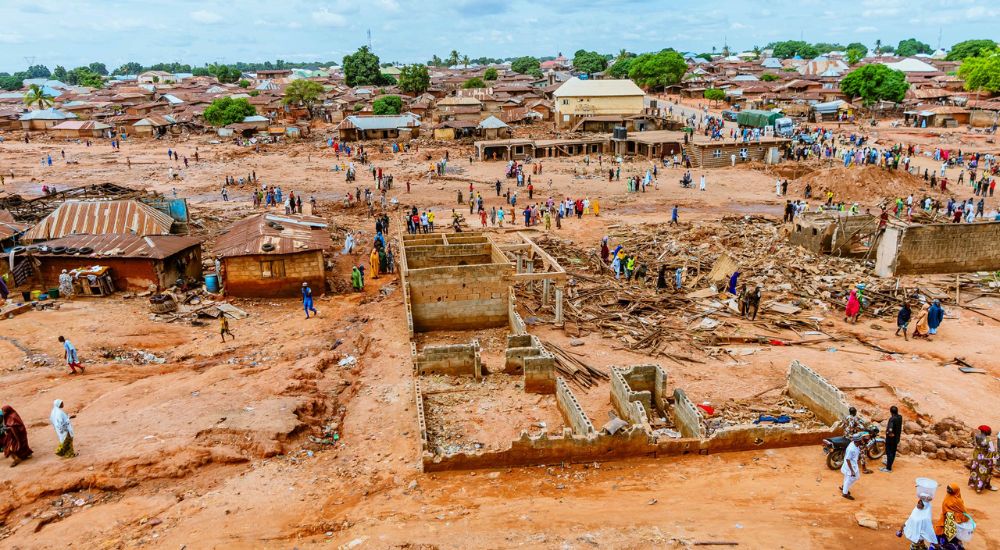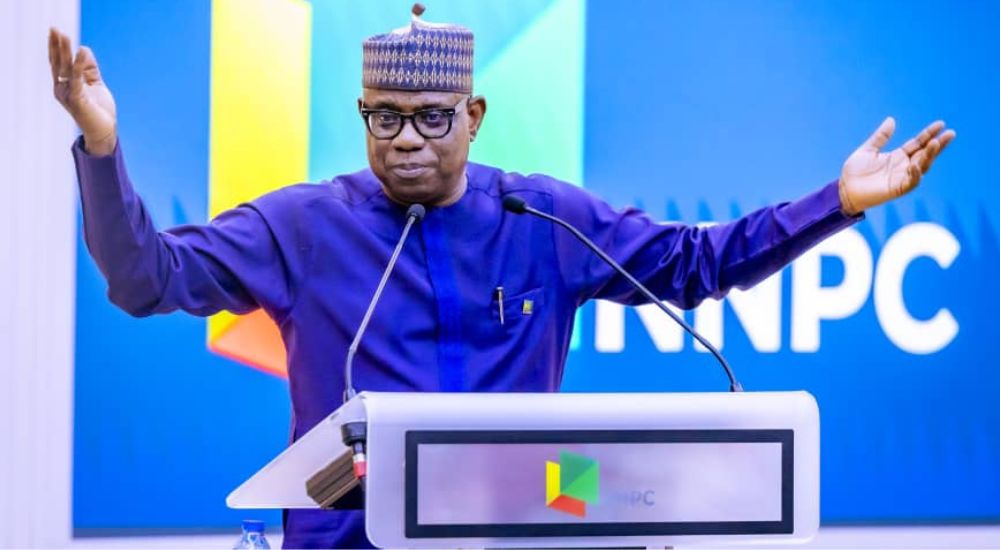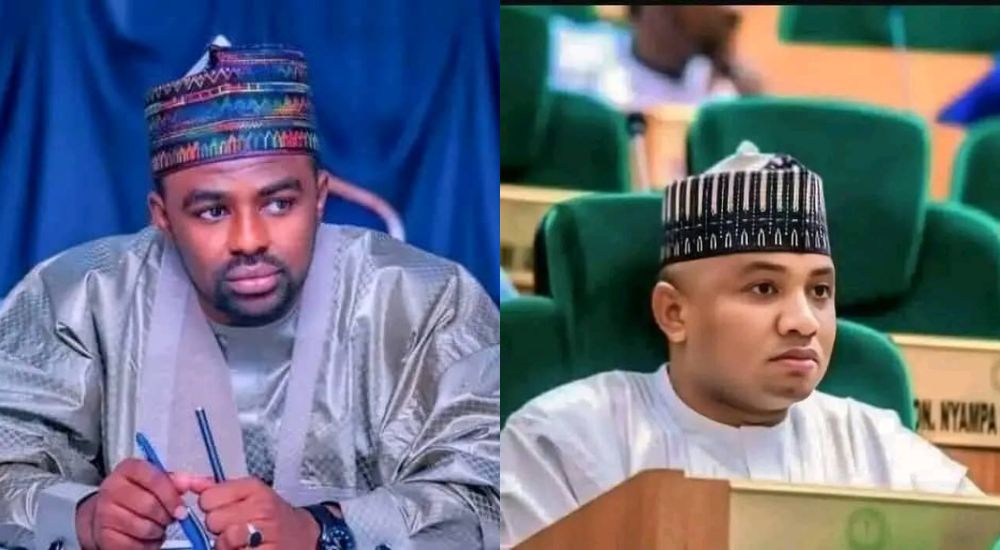Two Years Of Tinubu: Where’s The Opposition?

Two years into the administration of President Bola Tinubu, Nigeria’s opposition finds itself in a state of unprecedented confusion, division, and apparent paralysis. The president, some will argue, has fashioned a strategy to engender opposition within the opposition parties, which has diminished their strength.
Without the need for sweeping rhetoric or dramatic gestures towards them, Tinubu appeared to have managed to outmaneuver the political parties that once posed formidable resistance just a few years ago.
Today, many observers and political analysts are beginning to ask a sobering question: Is Nigeria becoming a de facto one-party state? In fact, many have warned the country is tilting precipitously closer to a One-Party State in the last two years than ever.
Interestingly, Tinubu’s presidency has not been marked by loud populism or grand public shows of political strength. In fact, the unraveling economy which has left many Nigerians marooned in poverty gave the opposition the opportunity to seize the gauntlet.
Unfortunately, that’s not the case. And so, through a combination of strategic appointments, political realignments, and deft party management, he has created an environment in which the opposition appears disoriented—unable to respond cohesively to national issues or present a viable alternative.
Rather than offering consistent ideological or policy-based opposition, the various parties seem to be locked in internal power struggles, personal rivalries, and survivalist posturing.
The president himself rejected the one-party accusation during democracy day broadcast saying, “You are all welcome to the progressive fold. Nobody should close the door. Political parties fearful of members leaving may be better served by examining their internal processes and affairs, rather than fearfully conjuring up demons that do not exist.
“I will not say, try your best to put your house in order. I will not help you to do so, either,” Tinubu added.
APC Going Strong, But PDP, LP, Others In Crisis
The All Progressives Congress (APC), by contrast, has maintained relative unity under Tinubu, now frequently absorbing some disillusioned figures from rival parties. Governors, senators, Rep members and respected figures even openly announce the date they will defect to the APC with scant regard for their parties.
While blame has been cast on the poaching strategy of the president, the parties are also consumed by schism. Many Nigerians do not agree that the government is deploying anti-corruption agencies to threaten and force their members to defect to the APC and that in any case, none of the opposition figures has presented hardcore facts to validate the allegation.
Number of Governors and their political parties in 2023
APC (20 states)
PDP (13 states)
APGA (1 state)
Labour (1 state)
NNPP (1 state
Governors and their political parties May 29, 2025
APC (23 states)
PDP (10 states)
APGA (1 state)
Labour (1 state)
NNPP (1 state
As the opposition members continue to defect, it has left the parties confused and bereft of ideas on how to thwart what they feel is the government’s onslaught to reduce them to paper parties.
Shockingly, nowhere is the collapse of the opposition more visible than in the Peoples Democratic Party (PDP). Once Nigeria’s dominant political force, the PDP governed for 16 uninterrupted years and famously boasted of ruling for 60.
That narrative began to unravel in 2015, when a coalition of opposition parties merged to form the APC and delivered a historic victory to Muhammadu Buhari.
Since then, the PDP has been plagued by internal contradictions. From leadership tussles to conflicting court orders, from zoning disputes to the enduring North-South divide within the party, the PDP has struggled to present itself as a unified force.
Senate in 2023
APC – 59
PDP – 36
LP – 8
SDP – 2
NNPP – 2
APGA. – 1
YPP – 1
APC – 70
PDP – 29
LP – 5
SDP – 1
NNPP – 1
APGA – 1
Two seats—one each in Edo and Anambra—currently vacant.
Its most recent presidential primary in 2022, which saw the emergence of Atiku Abubakar amidst controversy, further exposed the deep cracks within the party. It widened the crisis which has remained intractable.
According to political analyst Dr. Amina Yusuf of the Centre for Democracy and Development, “The PDP is a party in search of itself. It has not fully adjusted to life as an opposition party and has failed to inspire confidence that it can lead a credible challenge to the APC.”
But if the fortunes of the PDP have plummeted in an alarming rate, the Labour Party’s fortunes have even disappeared before it clocked one year when populism catapulted it into a formidable party many hoped would finally dislodge the ruling APC and dominant opposition PDP.
That is, for a brief moment during the 2023 election cycle, the Labour Party and its presidential candidate, Peter Obi, appeared to ignite a new flame of political consciousness—particularly among Nigerian youth and the urban middle class. The so-called ‘Obi-dient’ movement disrupted the traditional two-party dynamics and brought energy to the democratic space.
Yet, post-election, the party has struggled to convert electoral enthusiasm into a structured, sustainable political movement. Internal disagreements, leadership crises, and legal disputes have left the party vulnerable and fractured. What was once a rising star now seems in danger of fading before it can institutionalize its gains. It has gained little of nothing in the ongoing coalition talks.
“Peter Obi lit a match, but the question is whether the Labour Party has the capacity to build a furnace,” says journalist and political commentator Ibrahim Adeyemi.
But the Director General of the Obidient Movement, Dr Tanko Yunusa argued that Peter Obi remains formidable and with the Obidient Movement, “We still remain the party to beat.”
However, a lawyer and human rights activist, Deji Adeyanju disputed the strength of Mr Peter Obi and his Obidient Movement arguing for the fact that the opposition is “Tinubu, he and his APC gang will still coast to victory. A fractured opposition; a divided opposition and a disorganized opposition makes it easy for Tinubu to win.”
Lack Of Political Ideologies, Cohesive Leadership
Beyond the PDP and Labour Party, smaller parties such as the NNPP, SDP, and ADC have failed to build serious national appeal or establish ideological identities that could attract a critical mass of voters. Many exist in name only, springing to life briefly during election seasons, only to retreat into political dormancy afterward.
Their inability to form a united front, even on key national issues such as economic reforms, judicial independence, and electoral credibility, has contributed to the growing perception that Nigeria is fast becoming a one-party-dominated state.
Beyond that is the issue of ideology. Where do these parties stand and what differentiate them from the APC or PDP or Labour Party? Their lack of ideology has led many to call the mushroom parties whose only fortunes come during election periods where they align and endorse a viable candidate with a chance of winning to get financial support.
A political scientist at Ibrahim Badamasi Babangida (IBB) University, Lapai, Dr. Kamar Hamza, said, “Most politicians are driven by personal gain. When they sense opportunity elsewhere, they jump ship without concern for principle or public service.
“Our parties have become platforms for power, not vehicles for policy,” he said.
House of Representatives 2023
APC – 175
PDP – 118
LP – 35
NNPP – 19
APGA – 5
ADC – 2
SDP – 2
YPP – 1
Three vacant seats.
House of Representatives as of May 29, 2025
July 23, 2024, Hon. Idris Salman (Kabba-Bunu/Ijumu, Kogi State) moved from ADC to APC.
October 2024, Hon. Chris Nkwonta (Ukwa East/West, Abia) and Hon. Sulaiman Abubakar (Gummi/Bukkuyum, Zamfara) left PDP for APC.
December 5, 2024, four LP lawmakers—Hon. Chinedu Okere (Owerri Municipal/North/West), Hon. Mathew Donatus (Kaura, Kaduna), Hon. Bassey Akiba (Calabar Municipal/Odukpani, Cross River), and Hon. Esosa Iyawe (Oredo, Edo)—defected to APC.
Hon. Alfred Ajang (Jos South/East, Plateau) joined APC on December 12 from LP.
February 2025, Hon. Amos Magaji (Zangon Kataf/Jaba, Kaduna) and Hon. Garba Koko (Kebbi) defected from PDP to APC,
March 2025, Hon. Jallo Hussaini Mohammed (Igabi, Kaduna) and Hon. Adamu Tanko (Gurara/Suleja/Tafa, Niger) left the PDP for APC, Hon. Chinwe Clara Nnabuife (Orumba North/South, Anambra) defected from YPP to APGA.
May 2025, Hon. Victor Nwokolo (Ika North East/Ika South), Hon. Julius Pondi (Burutu), Hon. Thomas Ereyitomi (Warri Federal Constituency), Hon. Nicholas Mutu (Bomadi/Patani), Hon. Ukodhiko Jonathan (Isoko Federal Constituency), and Hon. Ezechi Nnamdi (Ndokwa/Ukwuani) left PDP for APC.
May 2025, LP members from Enugu—Hon. Obetta Chidi (Nsukka/Igbo-Eze South) and Hon. Dennis Agbo (Igbo-Eze North/Udenu)—defected to PDP.
May 2025, Kabiru Usman and Abdullahi Sani (NNPP, Kano); Oriade/Obokun (Osun State), Oluwole Oke, left PDP to APC; Hon. Sunday Umeha (Udi/Ezeagu, Enugu), moved from LP to APC.
On June 14, Peter Akpanke (Obanliku/Bekwarra/Obudu – Cross River) moved to APC from PDP.
Across the opposition spectrum, there is a noticeable vacuum in visionary leadership. Many of the leading opposition figures, rather than rallying forces, have either retreated into silence or are embroiled in intra-party squabbles. Some are serving in the ruling party while arguing they are still members of the opposition.
For instance, the FCT Minister, Nyesom Wike and his aide, Lere Olayinka are a few examples of high ranking opposition members that have accepted to serve in the APC government. This has disrupted the rhythm and flow of leadership in the opposition parties as their interests cross.
This desire for personal political survival has, in many cases, overtaken the broader need for collective strategy and national vision.
“It’s not just that Tinubu is playing chess,” one former lawmaker from the South-West has said. “It’s that the opposition is not even on board.”
The result is a political landscape where the ruling APC faces little serious scrutiny or policy challenge not just ahead of the 2027 election but in key policy areas —a situation that undermines democratic accountability and risks the entrenchment of complacency in governance, and one party state.
Two Years Of Tinubu: Where’s The Opposition? is first published on The Whistler Newspaper




